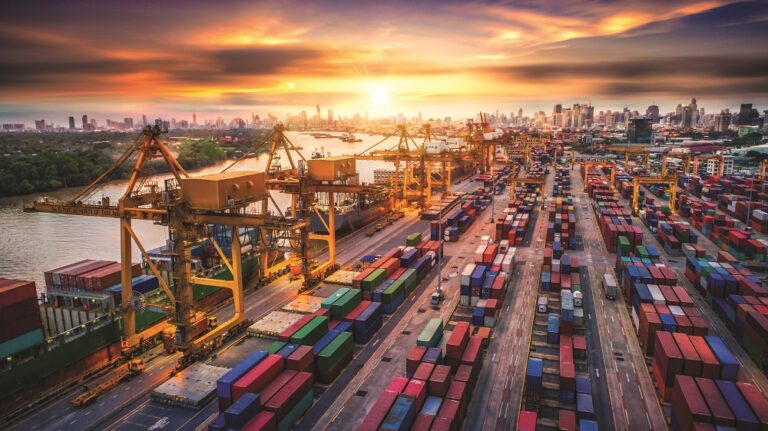The Government’s spending watchdog, the National Audit Office (NAO), has criticised the repeated delays and change of plans related to the introduction of full import controls following the UK’s exit from the European Union (EU), causing uncertainty for businesses and extra costs for government and ports.
The UK’s exit from the EU resulted in changes to how goods and services are traded between the two territories.
Government is currently operating a partial import control regime after delaying the implementation of full controls five times since the end of the EU exit transition period on 31 December 2020.
It estimates that it will have spent at least £4.7 billion to implement new arrangements and improve the management of the border, but has not yet specified when it intends to have a full regime in place.
The repeated delays in introducing import controls, and difficulties forecasting requirements, have resulted in government expenditure on infrastructure and staff that were ultimately not needed. Late announcements about policy and uncertainty about the implementation of controls have also reduced the ability of businesses and ports to prepare for changes.
Though post EU exit border processes (including the introduction of full customs controls) have operated relatively smoothly, businesses trading goods between the UK and the EU have faced additional costs and administrative burdens.
In 2022, traders made 39 million customs declarations on goods moving between Great Britain and the EU. Meanwhile, HM Revenue & Customs (HMRC) is yet to update its 2019 estimate that completing customs declarations would result in an additional annual burden to UK businesses of £7.5 billion.
The government is introducing new controls in 2024 relating to sanitary and phytosanitary (SPS) goods and safety and security declarations (SSDs),5 focusing on higher-risk areas such as plant and animal products that are more likely to be carrying pests and disease. The latest phase came into force on 30 April 2024, with further controls to come later. When fully implemented, these controls will cost traders an estimated £469 million a year, although some costs would have existed before the UK left the EU.
The loss of access to EU surveillance and alert systems reduces the UK’s awareness of impending dangers like African Swine Fever, and the phased approach to introducing full controls has increased biosecurity risk. Ongoing uncertainties and differences in port readiness also mean that new SPS controls may operate on an inconsistent and incomplete basis for a period after they are introduced.
Implementing a full import control regime is part of the UK government’s ambition of having “the world’s most effective border, one that creates prosperity and enhances security for a global United Kingdom”.
However, its 2025 UK Border Strategy lacks a clear timetable and an integrated cross-government delivery plan, with individual departments leading different aspects of implementation, the report states.
Without strong mechanisms to report on delivery and hold departments to account, there is a significant risk that delivery of the Strategy’s underlying programmes will fall well into the future. When it published the Strategy in 2020, the government committed to publishing an annual report setting out progress, but this will not happen until 2025 at the earliest.
Improving the functioning of the border is dependent on the successful delivery of the Single Trade Window (STW) digital programme, but the programme fell behind its original schedule and has since been replanned.
The NAO report identifies challenges to the delivery of the STW, including overly optimistic timescales and an underestimation of the programme’s complexity. HMRC acknowledges the challenges facing the programme and considers delivery to be back on track.
The UK government is still finalising its plans for the movement of goods into and out of Northern Ireland and is working with the Northern Ireland Civil Service to implement new arrangements.
The NAO recommends that full border controls operate at all ports as soon as possible, with government departments and devolved administrations collaborating where necessary.
Other recommendations include refreshing the STW delivery roadmap and clarifying cross-departmental coordination, monitoring and reporting on the 2025 UK Border Strategy.
“The UK leaving the EU created a large-scale change in arrangements for the movement of goods across the border. However, more than three years after the end of the transition period, it is still not clear when full controls will be in place,” said Gareth Davies, head of the NAO.
“The border strategy has ambitious plans to use technology and data to facilitate trade while managing risks. To achieve its objectives, government requires strong delivery and accountability – including a more realistic approach to digital transformation – together with effective monitoring to enable future improvements.”


